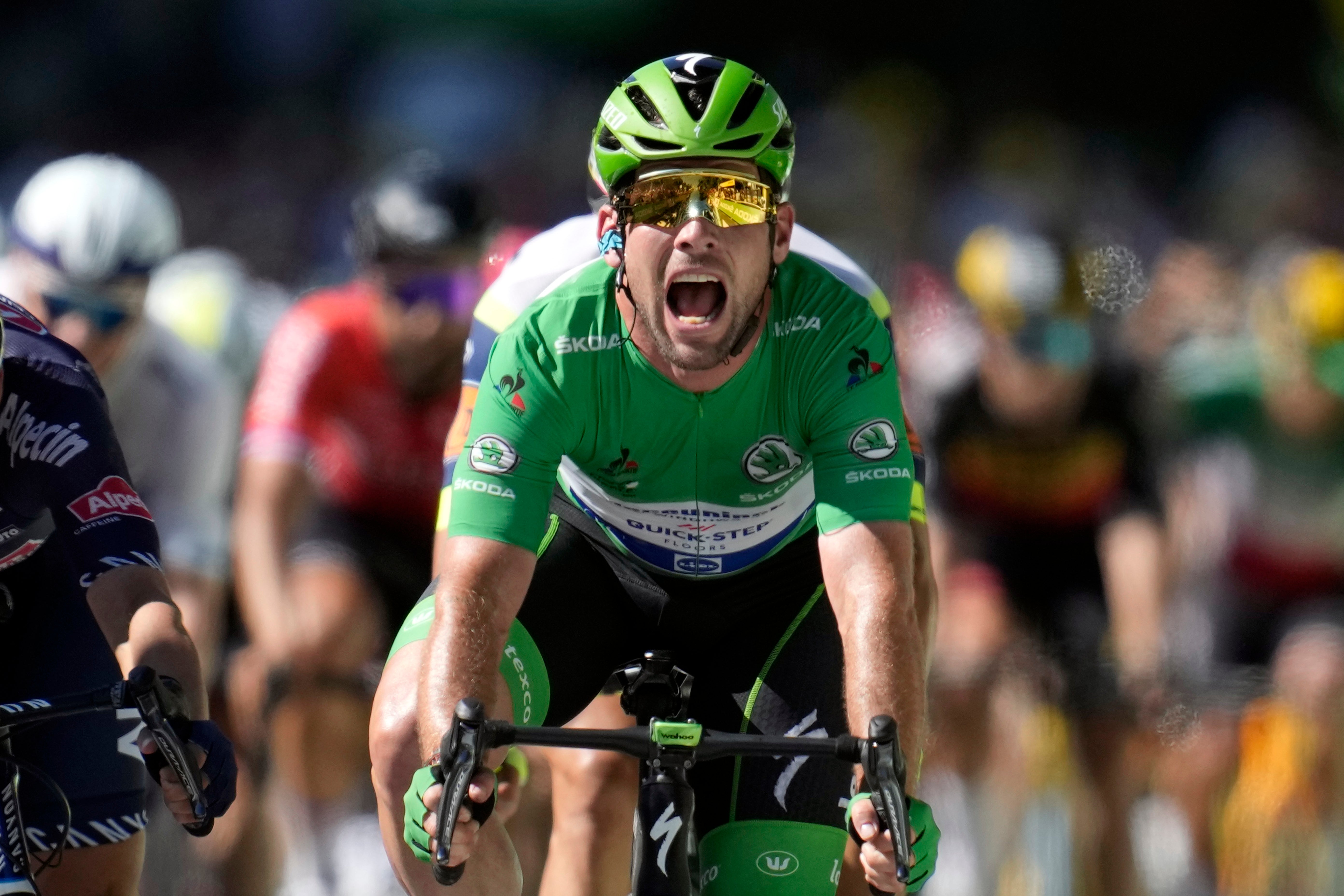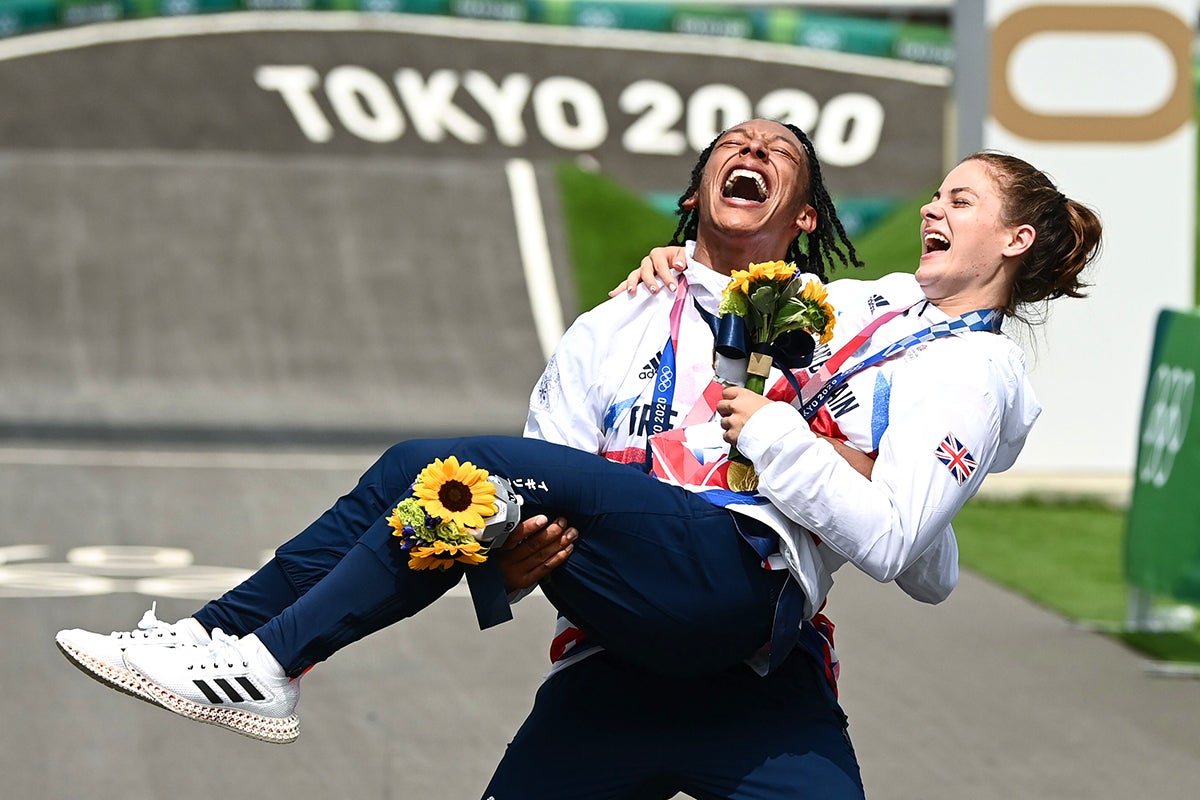Mark Cavendish and Lizzie Deignan write history in memorable year for British cycling
The Cavendish renaissance was part of a memorable year, writes Lawrence Ostlere, though Deignan’s success was also a reminder of how far the sport has to go to achieve real equality


Your support helps us to tell the story
From reproductive rights to climate change to Big Tech, The Independent is on the ground when the story is developing. Whether it's investigating the financials of Elon Musk's pro-Trump PAC or producing our latest documentary, 'The A Word', which shines a light on the American women fighting for reproductive rights, we know how important it is to parse out the facts from the messaging.
At such a critical moment in US history, we need reporters on the ground. Your donation allows us to keep sending journalists to speak to both sides of the story.
The Independent is trusted by Americans across the entire political spectrum. And unlike many other quality news outlets, we choose not to lock Americans out of our reporting and analysis with paywalls. We believe quality journalism should be available to everyone, paid for by those who can afford it.
Your support makes all the difference.Back in January you would have been hard pushed to find anyone tipping 2021 as the year of Mark Cavendish. He had finished 2020 at Belgian race Gent-Wevelgem holding back the tears, telling an interviewer: “That’s perhaps the last race of my career.”
Then his old boss at Deceuninck-QuickStep, Patrick Lefevere, offered him a lifeline. Cavendish joined QuickStep though even then he was not supposed to be at the Tour de France until lead sprinter Sam Bennett’s withdrawal opened a spot. The 36-year-old Cavendish grasped the opportunity with both hands, adding four more stage wins to his palmares to match the great Eddy Merckx’s Tour record of 34 victories, with the kind of dominance most Cavendish fans thought was in the past.
Cavendish relied heavily on his teammates and was effusive in his praise of his ruthlessly efficient QuickStep lead-out train, fronted by the highly regarded Michael Morkov who carried his man to the finish straights before setting him free. But the rest was all Cavendish – the power, the timing, the racing instincts – and he approaches 2022 just one Tour de France stage from going out on his own on 35 wins, writing a piece of sporting history which may never be beaten.
The Cavendish renaissance was part of a memorable year from a British perspective. Dame Sarah Storey was well worthy of her place on the shortlist for the BBC Sports Personality of the Year awards after taking her extraordinary Paralympic medal haul to 28, including 17 golds, and her place on the end-of-year list represented the many achievements of British cyclists of Tokyo. Laura Kenny imbued her reputation as a great of the track when she clinched madison victory for her fifth Olympic gold, more than any British woman in history; though remarkably she is still playing catch-up in her own household to husband Jason Kenny who became the most decorated British Olympian of all time when he won his seventh gold medal in the keirin. There were several newcomers who made their mark, too, like Matt Walls and his memorable omnium gold.
The Olympics was a stage to showcase cycling in its many glorious guises. From the track velodrome to the road autodrome, via the undulating ramps of the BMX track where Beth Shriever pulled off the trick of a lifetime, to the muddy carnage of the cyclocross circuit where Tom Pidcock stormed to gold on Team GB’s Magic Monday.

The Games was also a place of chaos and comedy, most notably the women’s road race which Austria’s Anna Kiesenhofer won by stealth, escaping up the road undetected and causing silver medallist Annemiek van Vleuten to cross the line a minute later celebrating like she’d won. Van Vleuten did not win the world championship road race either, with the rainbow jersey taken by Elisa Long-Borghini, but she could take solace in what was otherwise a stellar season. Aged 39 she is still on top of the road cycling world and she reaffirmed that reputation with World Tour victories in Belgium, Norway and Spain twice, as well as a clutch of podiums which saw her top the women’s rankings.
The men’s standout rider was equally clear: Tadej Pogacar won the first and last races of the World Tour calendar and in between he racked up three more, including a dominant defence of his yellow jersey at the Tour de France. The 23-year-old Slovenian remains the man to beat, although Julian Alaphilippe had another impressive year which included road race glory at the UCI World Championships, victory at La Fleche Wallonne and winning the first stage of the Tour, to the delight of French fans.
The broader picture showed a year of progress in a sport that is always a little behind the times. More than a century after the first men’s edition, the first ever women’s Paris-Roubaix was a thriller in dire autumn conditions and it saw another British triumph as Lizzie Deignan surged to glory across the cobbles to complete her Monument treble. “We didn’t have a chance to dream for so long, it’s always been a men’s race,” she said. “I am just so proud that this is where we are, that women’s cycling is on the world stage now. I am proud that my daughter can look at the trophy. She doesn’t just have to watch men on the TV anymore.” Her bloodstained handlebars told a story of sheer determination, but the paltry prize money was a reminder that equality is a long road in cycling.
For the first time in more than 30 years, a week-long women’s Tour de France is set for 2022, in a summer where Deignan and Cavendish will both have grand ambitions. Both have considered retirement in recent times, yet each has written new history this year and are not done yet, which is all the more reason to tune in in 2022.
Join our commenting forum
Join thought-provoking conversations, follow other Independent readers and see their replies
Comments